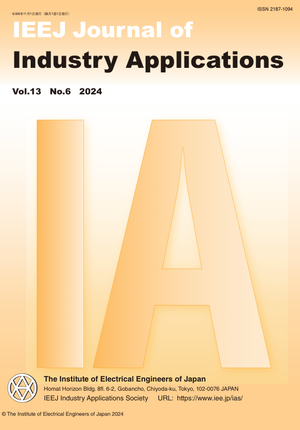Time-efficient Design of Energy-efficient Train Operation Strategy with Multi-fidelity Train Simulators
Time-efficient Design of Energy-efficient Train Operation Strategy with Multi-fidelity Train Simulators
カテゴリ: 論文誌(論文単位)
グループ名: 【D】産業応用部門(英文)
発行日: 2024/11/01
タイトル(英語): Time-efficient Design of Energy-efficient Train Operation Strategy with Multi-fidelity Train Simulators
著者名: Xuanlang Meng (Department of Electrical Engineering and Information System, Graduate School of Engineering, The University of Tokyo), Wataru Ohnishi (Department of Electrical Engineering and Information System, Graduate School of Engineering, The Universi
著者名(英語): Xuanlang Meng (Department of Electrical Engineering and Information System, Graduate School of Engineering, The University of Tokyo), Wataru Ohnishi (Department of Electrical Engineering and Information System, Graduate School of Engineering, The University of Tokyo), Takafumi Koseki (Department of Electrical Engineering and Information System, Graduate School of Engineering, The University of Tokyo)
キーワード: automatic train operation,energy-efficient operation,fine tuning,regenerative braking energy,power supply network,collaborative train operation
要約(英語): Designing energy-efficient train operation strategies presents a significant computational challenge due to the inherent nonlinearity introduced by factors such as friction forces, motor efficiency variations, and power supply network fluctuations. Furthermore, when considering the utilization of regenerative braking energy (RBE) between trains, the complexity of collaborative train operation increases. To address this challenge while avoiding excessive computational costs, the solution space is explored focusing on the neighborhood of an empirically good initial solution, and potential solutions are assessed using multi-fidelity simulators, including a numerical simulator considering the power supply network and an analytical simulator. In addition, the proposed methodology is applied to a two-train case study where RBE exchange is feasible. The results from collaborative optimization are compared with those from single-train optimization using the Dynamic Programming method. Time efficiency is further analyzed based on single-train and two-train scenarios. The outcomes underscore the potential benefits of collaborative optimization, including reduced energy consumption and enhanced stability of overhead voltage, contributing to more sustainable and cost-effective train operations.
本誌: IEEJ Journal of Industry Applications Vol.13 No.6 (2024)
本誌掲載ページ: 609-617 p
原稿種別: 論文/英語
電子版へのリンク: https://www.jstage.jst.go.jp/article/ieejjia/13/6/13_23011496/_article/-char/ja/
受取状況を読み込めませんでした


